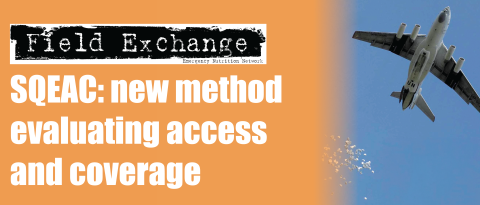Unified United Nations response to the global food price challenge
On 29 April 2008, a press release1 detailed a unified United Nations (UN) response to the recent dramatic escalation in food prices that is unfolding as a worldwide crisis. This followed a meeting of the Executive Heads of the United Nations specialised agencies, Funds and Programmes and Bretton Woods institutions2, in Bern on 28 and 29 April 2008. Under the chairmanship of the UN Secretary-General, a common strategy was agreed in support of developing country governance to confront the global food crisis.
To meet immediate emergency requirements, the Chief Executives Board (CEB)3 called upon the international community to fund urgently and fully the emergency requirements of US$755 million for the World Food Programme (WFP), deliver on its pledges and provide maximum flexibility to target the most urgent needs.
The CEB also asked for action to be taken to counteract the effects of escalating energy, fertilizer and input prices by providing developing country farmers with the support required to ensure the next harvest. To address this:
- The Food and Agriculture Organisation (FAO) Emergency Initiative on soaring food prices has called for US$ 1.7 billion in funding to provide low income food deficit countries with seeds and inputs to boost production.
- The International Fund for Agricultural Development (IFAD) is making available US$200 million to poor farmers in the most affected countries to boost food production by providing essential inputs.
- The World Bank is exploring a rapid financing facility for grant support to especially fragile, poor countries and quicker, more flexible financing for others.
To address short to medium term challenges, the UN system will co-operate to provide for development of emergency safety nets and social protection of the most vulnerable and rapid employment and income generation programmes.
At the country level, UN Resident and Humanitarian Coordinators, Heads of the World Bank missions, and the UN country teams will urgently meet with humanitarian agencies in affected countries to draw up support strategies for national governments and vulnerable populations and seek international support for their implementation.
The CEB has called upon countries where export restrictions on food have reduced supplies and contributed to price hikes, urgently to reconsider those policies.
In the medium to long term, the UN system will bring together its technical and analytical capabilities to fill research and knowledge gaps in order to support governments with the best information for agricultural decision-making to boost production and productivity. The CEB called for a rapid conclusion of the Doha Development Round to result in scaling down trade distorting subsidies that have damaged developing countries production capacity.
To address the long term challenges, the CEB urged that structural and policy issues, including challenges posed by climate change to productive systems that have substantially contributed to this crisis, be urgently addressed. Further research must be undertaken on the impact of diversion of food crops to bio-fuel production and all subsidies to food-based bio-fuels should be reviewed.
The specific needs of Africa as the most affected region should be addressed.
The World Bank, International Monetary Fund (IMF), IFAD and Regional Development Banks and relevant agencies of the UN system will collaborate to develop a long-term strategy. In order to create a prioritised plan of action and coordinate its implementation, a Task Force on the Global Food Crisis is being established immediately under the leadership of the Secretary-General bringing together the Heads of the United Nations specialised agencies, Funds and Programmes, Bretton Woods institutions and relevant parts of the UN Secretariat.
1http://www.reliefweb.int/rw/RWB.NSF/db900SID/EGUA-7E6MKV?OpenDocument
2The Bretton Woods Institutions are the World Bank and the International Monetary Fund (IMF). They were set up at a meeting of 43 countries in Bretton Woods, New Hampshire, USA in July 1944.
Imported from FEX website


